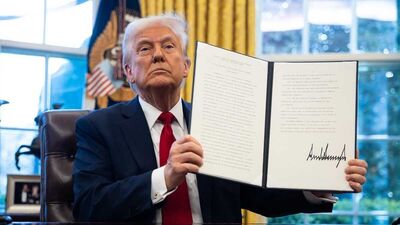Vége a találgatásnak, ledobta a vámbombát Donald Trump

Szerda este a Fehér Ház rózsakertjében tett bejelentést az Amerikai Egyesült Államok elnöke.

These are hard times for newspapers, and not just the Times. The Washington Post has been doing a long, slow fade, speeded up lately by the Great Recession.
„These are hard times for newspapers, and not just the Times. America’s other iconic daily of the past half-century, the Washington Post, has been doing a long, slow fade, speeded up lately by the Great Recession. The Post’s weekday circulation is barely two-thirds what it was in the nineteen-nineties. During the most recently measured six-month period alone, sales of the weekday paper plummeted thirteen per cent. Repeated buyouts have decimated the staff. Last year, the Post closed its remaining domestic bureaus, in Chicago, Los Angeles, and New York. Its stock price today is less than half what it was in 2004. Kaplan, the for-profit education outfit the Post acquired in 1984, now provides some sixty per cent of its income. A glum, decade-old newsroom wisecrack—that the Post is a test-prep tutoring service that puts out a newspaper as a hobby—got glummer in 2007, when the Washington Post Company officially declared itself an “education and media company,” no joke.
All the more reason, then, to ladle on the praise when the Post shows that it can still produce the kind of public-spirited, enterprising journalism that is essential to the health of a free society. Last week, in a series of three articles totalling some thirteen thousand words, the paper explored the immense national-security industry created since 9/11—a bureaucratic behemoth, substantially privatized but awash in public money, that has become so large, so unwieldy, and so secretive that it amounts to an alternative geography of the United States, a Top Secret America hidden from public view and lacking in thorough oversight.”











